Artist and writer Shen Leidigh has recently completed work on an original graphic novel seven years in the making. I’ve had the privilege to call Shen a friend (over 15 years now!) and I’ve had a front row seat watching this story grow and take on a life of its own. It’s a work of brilliance; a sprawling yet tightly crafted story. At once intimate and cosmological.
We took some time talk through the story, his particular influences, and how 61 days in the wilderness completely reshaped his creative focus.
Thank you for taking the time to talk with us today, Shen! How and where did your artistic journey begin?
I can’t remember a time when I wasn’t drawing, I’ve always had a very active imagination and I was always walking around with a pencil and paper as a child drawing what I saw inside my head.
A good part of my early childhood was spent on the road with my family, and those long car rides gave me plenty of time to sit and draw uninterrupted.
My first attempt at creating a comic book was when I was seven years old, but after that I didn’t seriously try again till 23 years later.
As for how it began, my Great Grandmother, my Grandmother, and my Mother were all artists, so I grew up around the smell of linseed oil and chalk pastels. Our walls were covered in works going back three generations, so the environment was one where art and being an artist was valued and accepted, I think that had an obvious impact.
The Psychedelic Singularity is a book seven years in the making. I feel incredibly privileged to have had a front row seat during those last seven years as you developed the story and began illustrating. For someone unfamiliar, how would you describe the book?
When I started out I wanted to make a book that worked on multiple different levels, a book that could be read as a strait forward adventure story with a solid narrative structure, a book that explored deeper and more meaningful themes, and finally a book that through the melding of narrative and art would impact the reader emotionally.
I suppose you could describe it as a book written for the Eyes, the Mind, and the Soul, or a book that works on the Visual level, the Mental level, and the Spiritual level.
I think most things in life translate to those three levels in some way, and I wanted my book to speak to that experience.
Tell us a bit about your writing process and how you work.
I enjoy new experiences, things that impact me, make me think, broaden my horizons, and when I’m there I try to be there, soaking it in, learning new things…later, I take long walks alone, think it all over and over in my mind, process it, try to understand it.
Later still, I’ll have these kind of flashes of emotion or understanding that will wash over me. I suppose you could call it inspiration.
I think each step in that process is important for me when I’m trying the create new work, the fresh experience and physicality, the mental processing of those experiences, and then the revelations or brief flashes of incite.
Of course sometimes all those steps happen in the space of a few seconds, and sometimes it can takes years.
When I sit down to actually set pencil or pen to paper, I’m most often chasing that faint trace of emotion or feeling like running after fireflies in the dark, lots of trips and falls, but if you can catch one it’s magical.
Who are some of your artistic influences and how did they inform this project?
I grew up with a lot of art books in my house, we had a whole series on The Old Masters, so I loved looking at those, in awe of the skill.
I still remember the first time I saw an actual page of a comic book, I was probably 5 or 6, and I saw an article about The Dark Knight Returns and it had a page of the comic, something where Commissioner Gordon is approached by some thugs on an empty street at night… and I had never seen anything like it… the use of stark shadows under a street light particularly entranced me. I would take it out and read that one page over and over and imagine what the rest of the story must be about. It wasn’t till years later that I was able to read the entire book, and it didn’t disappoint.
As I grew up I went on to discover the works of Moebius, Yukito Kishiro, Katsuhiro Otomo and others, all of whom had a profound impact on my sense of artistic sensibility.
Let’s talk about the 61 day hike that served as the initial inspiration for the story. Was it wholly inspired by your time in the wilderness or had the seeds been lurking for some time?
I’d say the idea had been growing for a while but I didn’t understand it. I had this feeling that things were out of balance in the world, I watched the film Koyaanisqatsi in around 2005 and it had impacted me profoundly. Things were rushing forwards at an incredible speed… in 2005 almost no one I knew had a cell phone, and by 2010 when I started planning for my hiking trip, almost everyone not only had a cell phone, but a smart phone as well. It really was a profound social and cultural change that happened in the blink of a eye, like waking up the next morning after a foot of snow has fallen. Where the old world is gone, hidden under a dazzling tabula rasa yet just under the surface all the old pitfalls of society and the human experience remained, all the more devious for being temporarily hidden from view.
So, I went out into the wilderness to try to think it over, and it was there that I came to a greater sense of peace with it all, it’s difficult to explain… a sort of new and more nuanced perspective.
Clearly, people have responded to The Psychedelic Singularity. What is it that you most hope sticks with a reader once they set the book down?
It’s feels a bit pretentious to say I hope the reader gets a sense of peace or hopefulness for the future from reading the book, although I do hope that.
Mostly, I hearken back to what I said about my creative process, that the book was created to speak to the Eyes, the Mind, and the Soul so if the readers are impacted positively on any or all of those levels that would be great.
Thanks so much for your time, Shen! Where can people follow you and learn more about your work and this book?
Thanks Cory, folks can find more about the book here and on my Instagram.


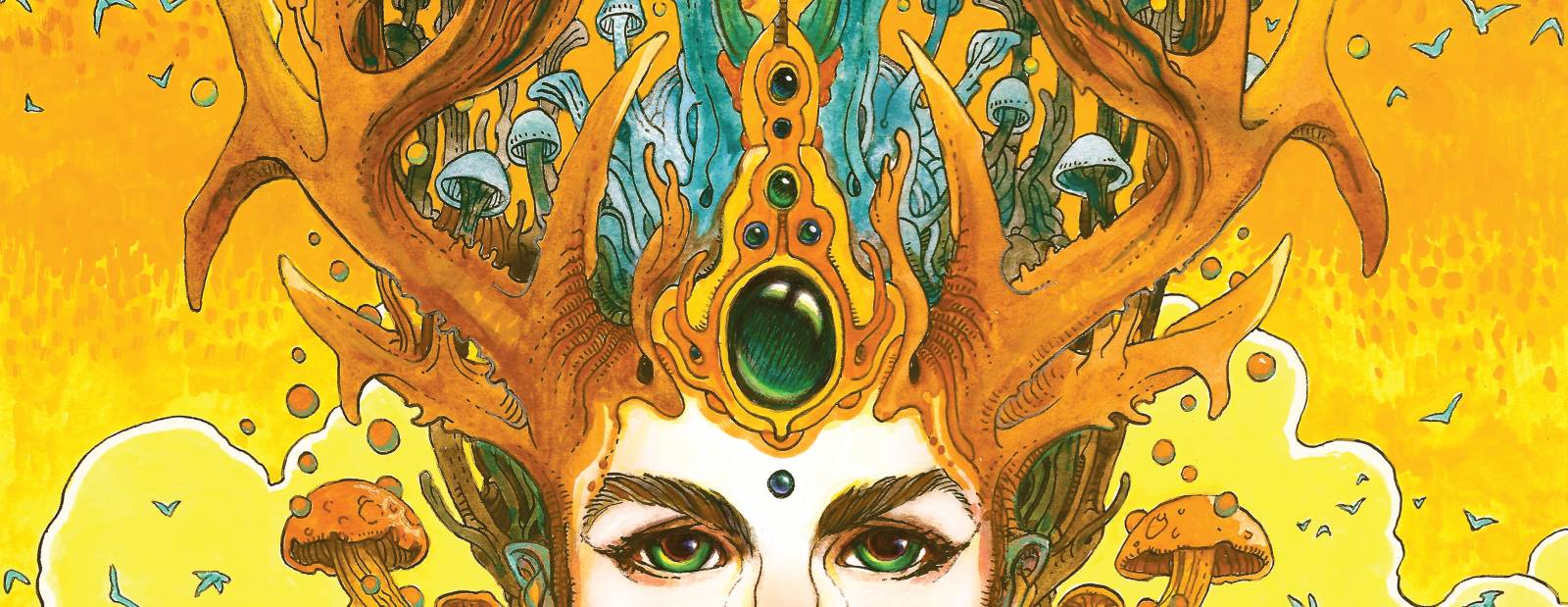

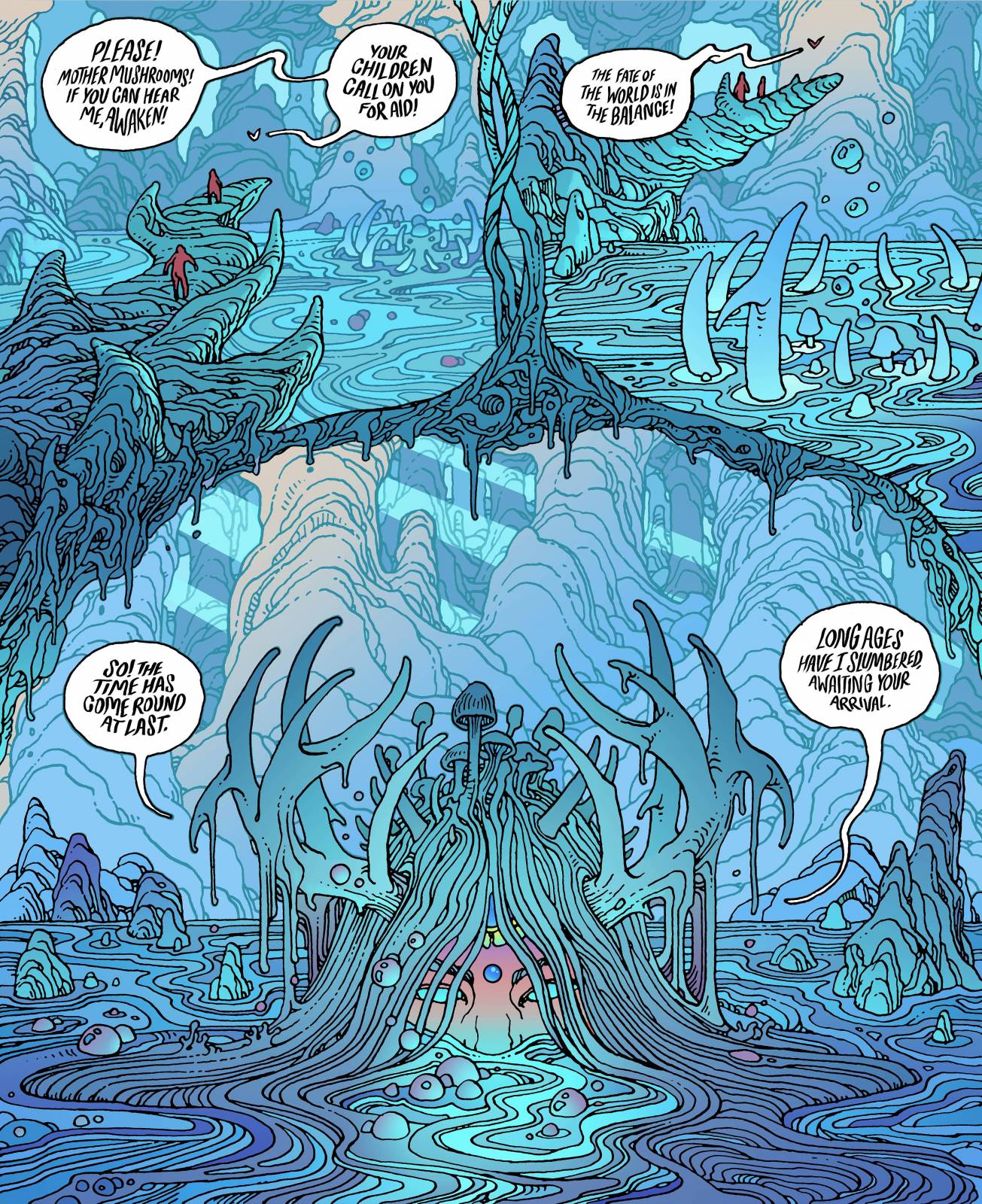

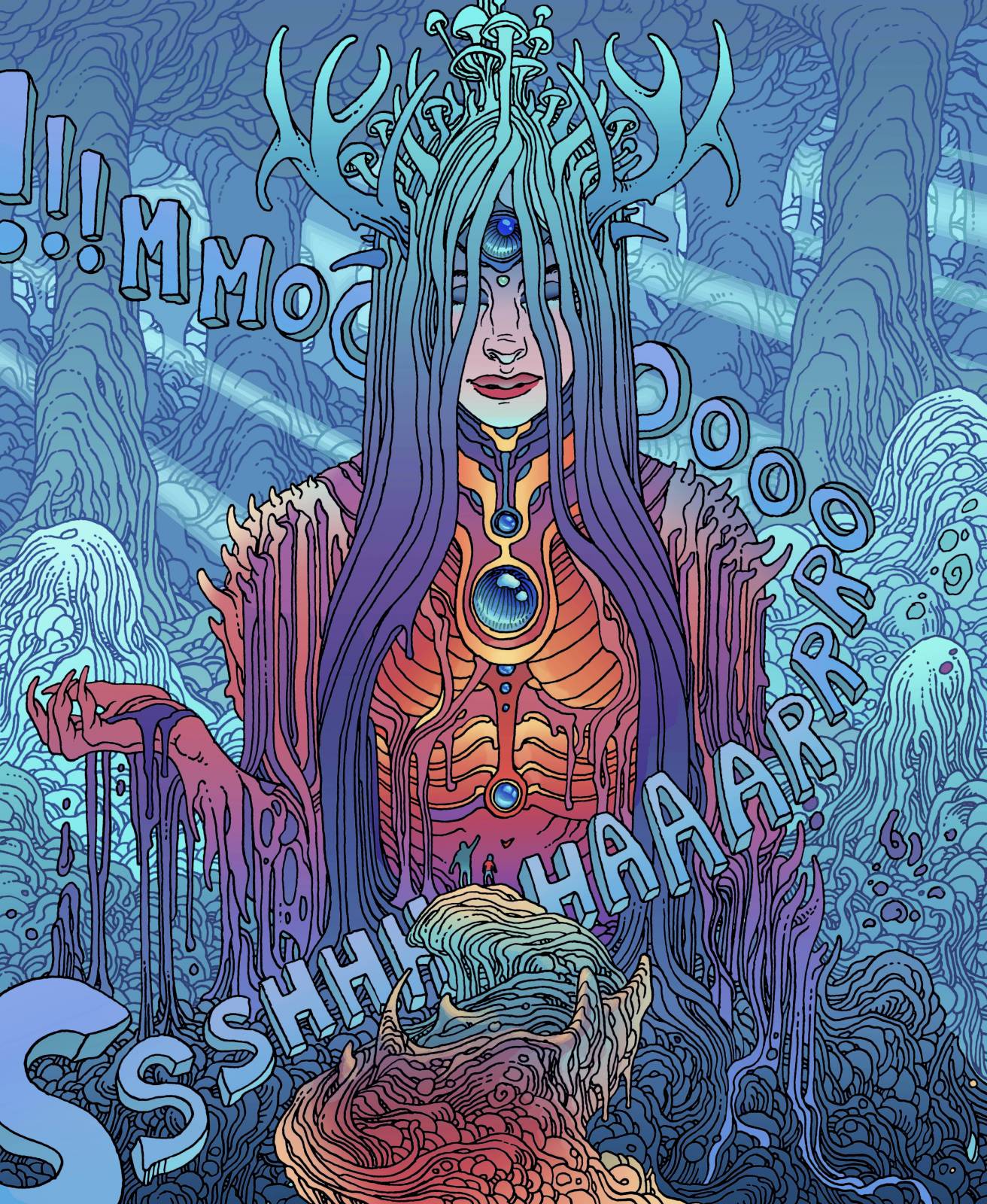
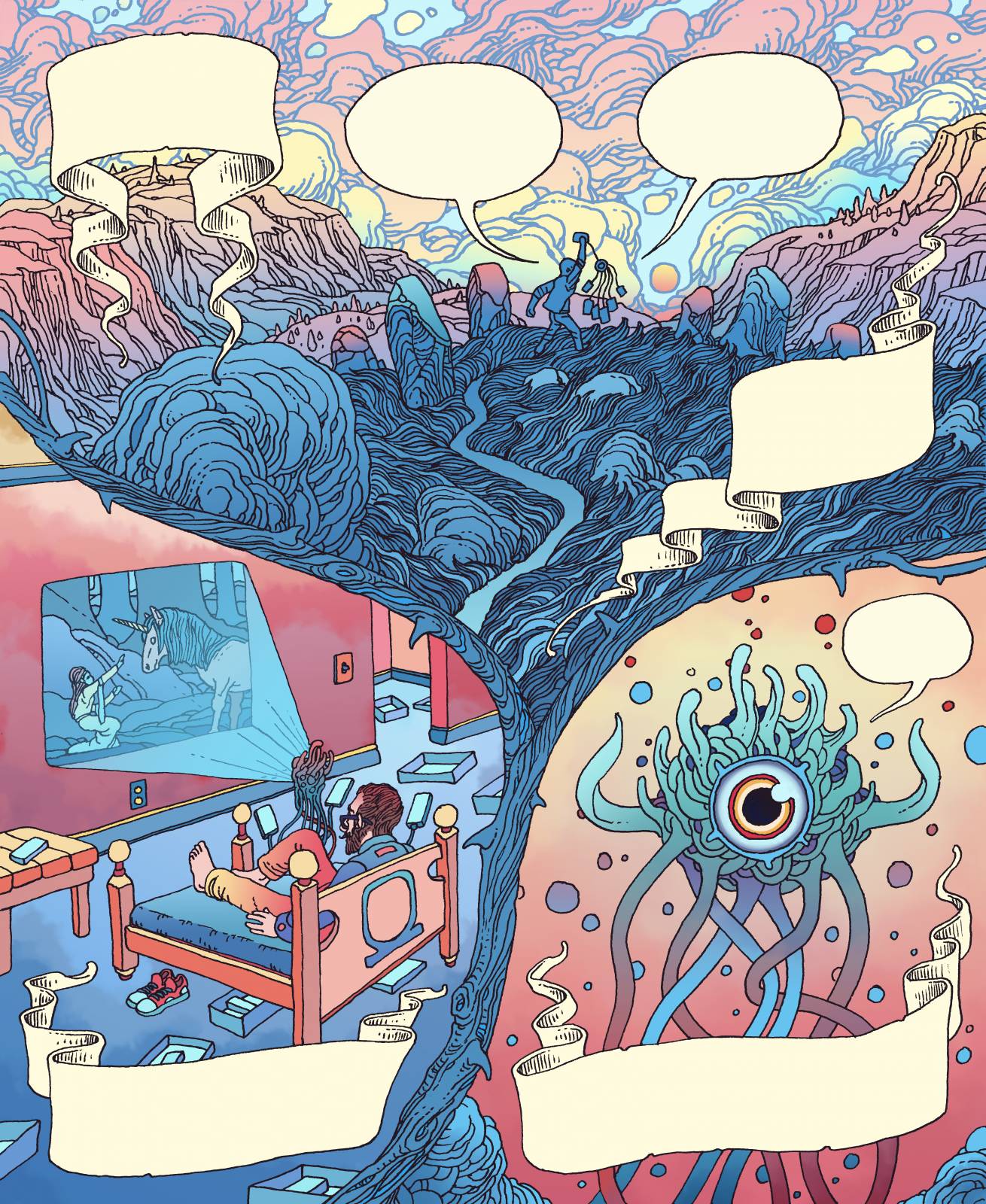
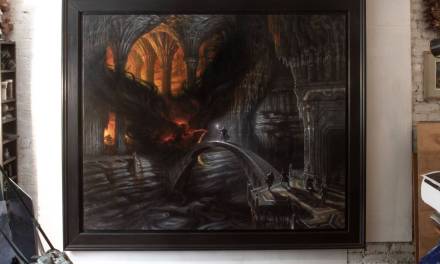
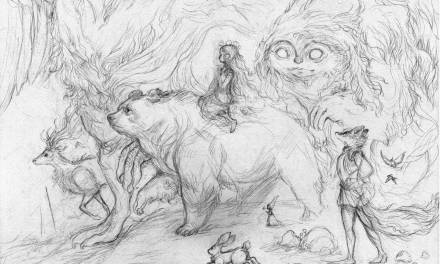
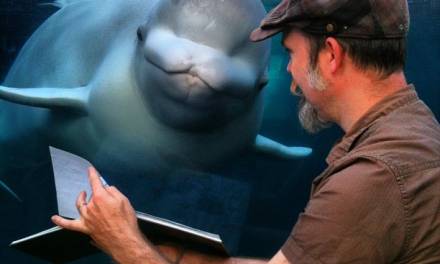
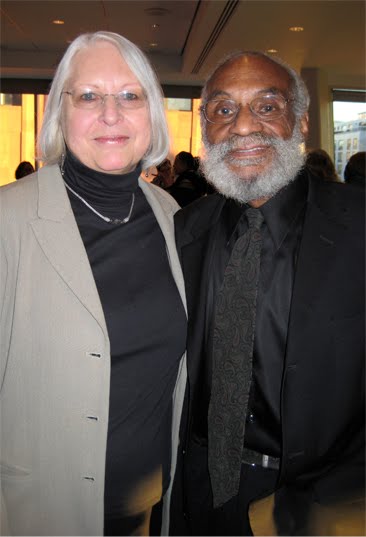

Very inspiring. The 61 day disconnect – wow. I don’t think I could handle it but I’d like to try it in smaller doses. I’m constantly thinking I need to disconnect.
Looking forward to my dose of peace and hopefulness for the future. Congratulations on the kickstart, looks like it will be funded shortly.
Thank You! Yes, it is very difficult to do 61 days, I recommend at least 14 days if you can work it out, it takes a good week at least just to begin to start relaxing, that’s when you get the full effect. :}
inspiring ! Thank you so much.
Thank You! :}
This looks beautiful!
Thank You Dan! So much thought and work went into this, it’s great to see it resonate with folks. :}